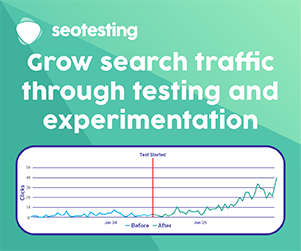Host Erin Sparks and Studio Creative Director Jacob Mann along with Mordy Oberstein, Wix’s SEO Liaison, pick apart digital marketing and SEO headlines this week, including Google testing local car inventory functionality, Google getting rid of their tested Q&A function, and how Glenn Gabe assessed the impact of the Product Review algorithm update. Get the news you can use in this week’s news roundup, episode 414 of the award-winning EDGE of the Web podcast!
Google testing local car inventory
[00:04:06]
It looks like Google is testing their ability to take over the car sales marketplace. Yet again, Google has found a way to disrupt companies that base their services on delivering information to consumers.
Barry Schwartz has the report, over on Search Engine Land, breaking it down. Head over to https://www.google.com/local/cars if you can (Mordy was able to pull it up, we weren’t). You should see new cars, used cars, prices, and pictures, as well as details and specs.
If you listened to our interview with Pedro Dias, you’re likely up to speed on how Google is taking over the world’s information. They’re able to create new experiences with other people’s data during this Utilitarian Age, and local car dealerships are going to want to get on board.
If you’re reading this and work at a car dealership, or know someone who does, make sure the information Google is crawling for isn’t gatekept away on your site. We can easily see this becoming the new way people buy cars online.
Google is dropping ‘Q&A on Google’ in search results
[00:09:27]
Google confirmed to Barry Schwartz that the Q&A feature, not to be confused with the Question Hub, is going away after two years in the market. The feature was initially rolled out for users in India and allowed people to answer questions that others had searched.
Slightly related, but Yahoo Answers is also on its way out as well (May 4th). Quora might just be the last great Q&A system left standing.
An assessment of the Product Review update
[00:13:51]
A wave of affiliate link pages masquerading as product reviews made it difficult to find legitimate, trustworthy information and reviews. Google saw the behavior, saw how it was affecting user experience, and implemented the Product Review algorithm update.
Glenn Gabe has been keeping an eye on the update and its effects, and published a fantastic report covering how its impacted websites, what websites are doing incorrectly, and how sites are actually servicing consumers.
Should you find yourself in the business of publishing product reviews, here’s how Google wants you to behave. Implement these, and Google will reward your content accordingly.
-
Express expert knowledge about products where appropriate?
-
Show what the product is like physically, or how it is used, with unique content beyond what’s provided by the manufacturer?
-
Provide quantitative measurements about how a product measures up in various categories of performance?
-
Explain what sets a product apart from its competitors?
-
Cover comparable products to consider, or explain which products might be best for certain uses or circumstances?
-
Discuss the benefits and drawbacks of a particular product, based on research into it?
-
Describe how a product has evolved from previous models or releases to provide improvements, address issues, or otherwise help users in making a purchase decision?
-
Identify key decision-making factors for the product’s category and how the product performs in those areas? For example, a car review might determine that fuel economy, safety, and handling are key decision-making factors and rate performance in those areas.
-
Describe key choices in how a product has been designed and their effect on the users beyond what the manufacturer says?
In general, host Erin Sparks believes that the above list is a great piece of insight into how Google wants the entire web to behave. These types of rules, specifically, apply to Product Reviews, but what Google’s asking of publishers follows a trend. These guidelines don’t exist in a bubble and likely apply to anything an SEO professional covers.






















